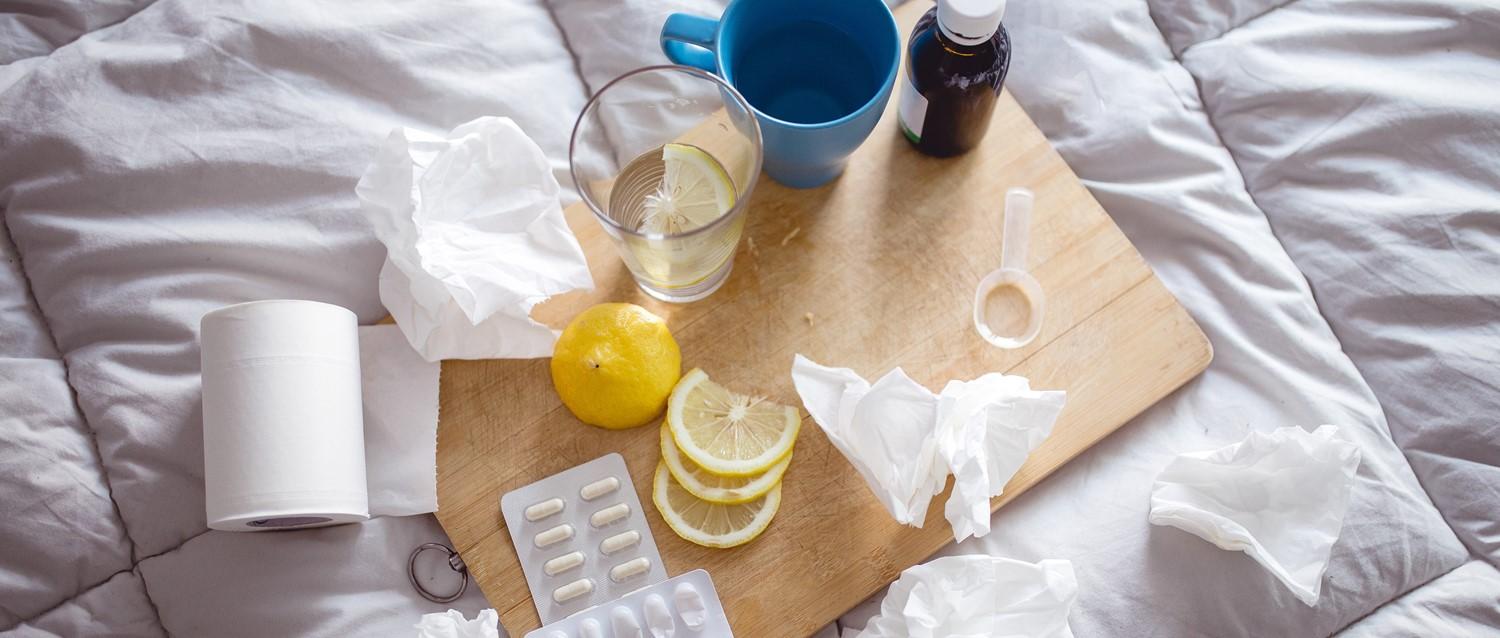
Coronavirus: how do we become immune to diseases like COVID-19?
Peer reviewed by Dr Sarah Jarvis MBE, FRCGPLast updated by Andrea DowneyLast updated 8 Apr 2020
- DownloadDownload
- Share
Our bodies are capable of amazing things, especially when faced with something like coronavirus and COVID-19. Our immune system is capable of developing antibodies to fight off bugs, as well as remembering them for the next time they attack the body.
In this article:
Use Patient's coronavirus checker tool if you have any symptoms of fever or a new cough. Until you have used the tool and been advised what action to take, please stay at home and avoid contact with other people.
In the midst of a global pandemic, our bodies' immune systems are working wonders to protect us from bugs and viruses. But how does the immune system work and how will it protect us from COVID-19? Dr Jenna Macciochi, author of Immunity: The Science of Staying Well, and Dr Michael Barnish, head of genetics and nutrition at REVIV, explain.
Continue reading below
What is the immune system?
The immune system is the body's natural defence to illnesses - it's a complex network of cells and proteins working to build up defences when an infection enters our body.
"Injury, infection and even cancer leave signals that are identified by the immune system that continuously polices the body," Dr Barnish says.
"The different cells of the immune system mask appropriate defensive responses, usually resulting in inflammation. Incredibly, the immune system has a capacity to remember what the best methods were to attack previous invaders so that a future exposure will be much less problematic. This is how immunity is built up and the basis of how vaccines work."
The body's inflammation response is caused by our innate immune system, Dr Macciochi adds, but sometimes extra back-up is needed from the adaptive immune system. The innate immune system offers an immediate, but nonspecific reaction to illness or injury. The adaptive immune system takes longer to respond but is a lot more targeted in its attack.
"The adapted immune response is highly specific: it takes up to five days to prepare an army of cells and antibodies to deal with the infection. Adaptive immunity also involves a memory response that remembers the specific germ and protects us if we are ever exposed to it again," she explains.
"This is also the principle of vaccination. But it doesn't work for all germs. For example, most of us will get chickenpox as a child which will result in a memory response that protects us for the rest of our lives. This doesn't work with the common cold. That's because the rhinovirus, which is responsible for the common cold, is always slightly changing its surface patterns to evade our immune memory."
Immunity against COVID-19
Unfortunately, as the COVID-19 strain of coronavirus is still so new, it's not yet known whether our bodies will build up an immunity to the virus.
"We do not know enough about the interaction between the current coronavirus and our immune system to definitely say if we would develop a protective immune memory response," explains Dr Macciochi.
"And if we do, we don't know if the memory response is long-lived. Nor do we know whether the virus will mutate and evade that protective memory."
But there is some good news. As people are recovering from COVID-19 it suggests our bodies are capable of an immune response to the virus.
"We know, with many people recovering from coronavirus, that the immune system can successfully fight off the COVID-19 virus. Evidence of the role each immune cell type plays is emerging. There are some similarities being observed to the flu virus response," Dr Barnish adds.
"Our bodies will have the capacity to build immunity to COVID-19, if exposed. However, like many viruses, this coronavirus can change easily and often. A new version of the virus may have the ability to hide from the immune memory cells. This is why influenza vaccines need to be given each year (rather than just a few times in a lifetime), to keep up with these changes."
Patient picks for COVID-19

Chest and lungs
Why are Black and Asian people at greater risk from COVID-19?
A new national review found that Black and Asian people are more likely than white people to die from COVID-19. To save lives, doctors and patients need specific advice to understand how and why the virus is impacting people of different ethnicities in different ways.
by Ellie Broughton

Chest and lungs
Long COVID
Most people with COVID-19 infection (SARS CoV-2 infection) feel better within a few days or weeks and recover completely within 12 weeks of the infection. However, some people have ongoing symptoms that remain for weeks, months, or longer, which is usually called "long COVID". For some, these long-term effects of COVID-19 can be debilitating. These effects can be very different from person to person, and it seems likely that there are different 'types' of long COVID, or different syndromes, which might behave in different ways.
by Dr Doug McKechnie, MRCGP
Continue reading below
A rule for one and not the other?
When it comes to viruses, the same rules apply for any virus. If our body has built up an immune response to one strain - for example, a particular strain of influenza - then we can fight off that virus without developing full-blown symptoms if exposed to it again.
But if the virus strain mutates and changes, which the flu does every year, then our body will need to build up another immune response. This is why yearly flu vaccines are vital.
Not only do these vaccines protect you, they help build up a herd immunity to an illness which protects vulnerable people who may not be able to get vaccinated. Herd immunity is achieved when a large enough proportion of the population is immune to an infection that it cannot spread effectively and dies out.
Protect your immune system
Looking after our bodies and keeping ourselves healthy is vital, particularly during an outbreak like the current coronavirus pandemic.
Protecting your immune system will help keep you healthy in the future and help you recover from illness faster.
"Now is not the time for drastic lifestyle changes but the small things matter. That includes taking care of your sleep, getting some daily movement even if self-isolating, eating well and keeping up to date with the changing guidance," Dr Macciochi says.
Dr Barnish adds that looking after your immune system doesn't have to be complicated.
"Obviously we all know about eating more fresh fruit and vegetables to up our vitamin intake. Vitamins C, D and B12 are critically important so consider an oral supplement, especially if you have been compromised," he explains.
Speak with your doctor before taking supplements, besides vitamin D. While vitamin D is found in some foods (such as egg yolks, oily fish and fortified foods), most people get the vast majority of their vitamin D through sunlight on the skin. National Institute for Health and Care Excellence (NICE) guidelines recommend that most people living in the UK take vitamin D supplements between October and early April since it can be difficult to get enough sunlight during the winter months.
"Also look for antioxidants such as Co-enzyme Q10 or Alpha Lipoic Acid (in broccoli, spinach, potatoes, yeast, tomatoes, carrots, beetroot and Brussels sprouts) and electrolytes like magnesium (sources include nuts, seeds, green leafy vegetables and oily fish). Avoid smoking and eating burnt food or anything that allows the toxic substance polycyclic aromatic hydrocarbons (PAHs) to accumulate in cells, and over-indulging, over-exercising and over-processed food - all deplete our immune systems."
In a nutshell, eating healthily, unprocessed foods, staying active and getting enough sleep are the simplest way to ensure your immune system is healthy enough to fight off germs.
Continue reading below
Seeking medical attention
Naturally, it's important that you still take precautions to avoid contracting coronavirus, even if you have a really healthy immune system. Follow the latest guidance from Public Health England which currently states that people who are well should only leave their home for few, very specific reasons. If you do have to go out, practise social distancing to avoid coming into contact with people who may be ill.
If you need to see a GP, take note of the latest guidance from your practice or local pharmacy or on their website. Some surgeries have stopped face-to-face appointments and are turning to video or telephone appointments. Others have switched off online appointment booking. Many non-urgent appointments will be cancelled as GP practices are overrun as a result of the pandemic.
If you need medication, pharmacies are functioning as usual but will be busier than they normally are. If you are self-isolating or can't attend in person to pick up your prescription, ask someone to pick it up on your behalf. Some pharmacies are still able to offer a home delivery service.
If you experience any symptoms of fever or new, continuous cough, self-isolate and avoid all contact with other people until you have used Patient's coronavirus checker tool to find out what to do next.
Article history
The information on this page is peer reviewed by qualified clinicians.
8 Apr 2020 | Latest version

Book a free same day online consultation
Get help with common conditions under the NHS Pharmacy First scheme.

Feeling unwell?
Assess your symptoms online for free